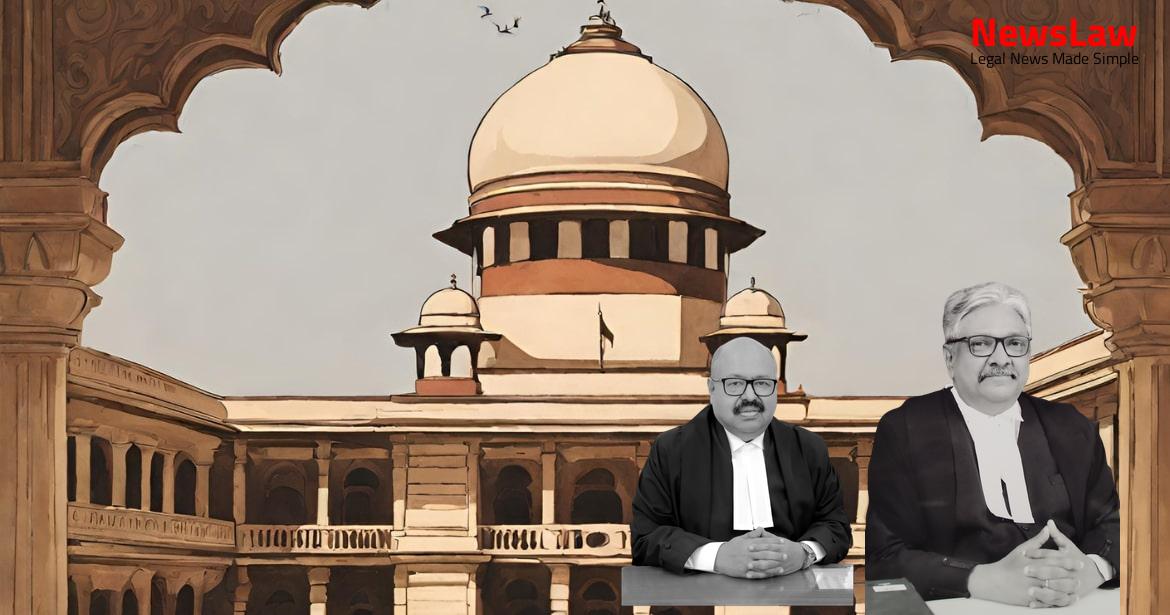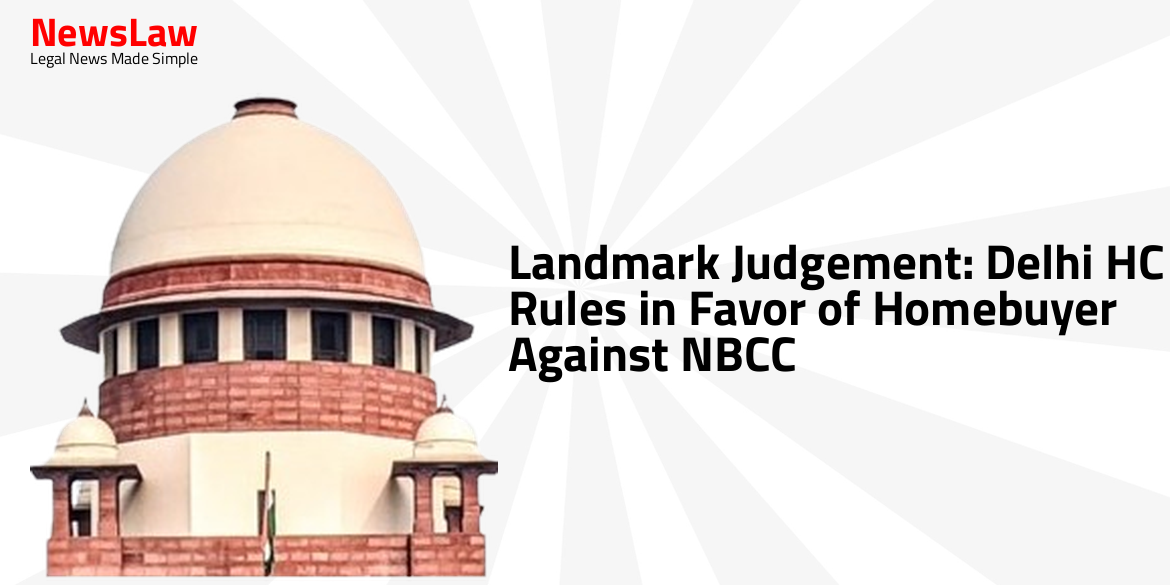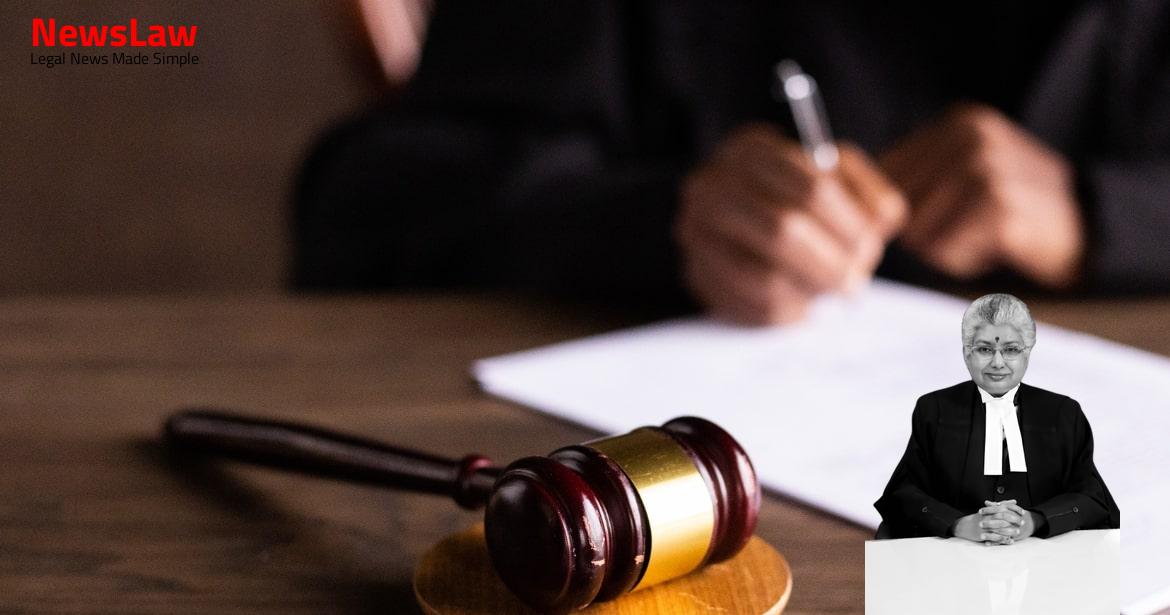The court’s legal analysis in a recent case sheds light on the delicate balance between seniority and merit in promotion decisions. This landmark judgement emphasizes the crucial need to consider both aspects to ensure fair and just outcomes in the promotion process. By upholding the principles of seniority-cum-merit, the court sets a strong precedent for future cases involving promotion criteria.
Facts
- The appellant was subsequently promoted to the post of Accountant on 1.10.2009.
- The appellant filed a W.P (C) No.1465 of 2012 before the Uttarakhand High Court for restoration of seniority after promotion.
- Central Command, Lucknow informed that the promotion to the post of Office Superintendent falls under the purview of the Cantonment Board.
- The pay scale comparison between the appellant and respondent no.3 showed the appellant’s seniority in the feeder cadre.
- The post of Office Superintendent is categorized as a ‘selection post’ under Rule 5B(8) where promotion is based on seniority cum merit.
- Respondent no.3 was promoted to Revenue Superintendent in 2005 with reservation benefit as a Scheduled Caste person.
- The Cantonment Board passed Resolution No.8 favoring the appellant for promotion to Office Superintendent.
- The Cantonment Board recommended the appellant for promotion to the selection post overlooking the respondent no.3.
- A denovo exercise for promotion to the post of Office Superintendent was decided by the Cantonment Board.
- The promotion for the Office Superintendent position required a service record without misconduct as per the Board’s decision.
- Respondent no.3 filed two writ petitions which were allowed by the learned Judge.
- Appellant and Cantonment Board filed Special Appeals against the judgment favoring respondent no.3.
- Disciplinary proceeding concluded with a penalty of recovery of Rs.10,000 due to respondent no.3’s dereliction of duty.
- Division Bench found appellant senior to respondent no.3 based on pay scale, rejecting the wrong O.M. as the basis for seniority.
- Single Judge concluded respondent no.3 was senior, dismissing the contention of appellant’s seniority based on pay scale.
- Chargesheet against respondent no.3 was seen as a deliberate tactic to exclude him from promotion consideration.
- The Court upheld the judgment in favor of respondent no.3, affirming the decision to quash appellant’s promotion and allow respondent no.3’s writ petitions.
- Division Bench directed Cantonment Board to conclude the disciplinary proceeding against respondent no.3 within 3 months.
Also Read: Insurance Claim Repudiation due to Fire Incident: Court’s Legal Analysis
Arguments
- Justice S.C. Agrawal in B.V. Sivaiah v. K. Addanki Babu addressed the principles of seniority and merit in determining promotions.
- The judgement highlighted the importance of balancing seniority and merit in decision-making processes.
- The court emphasized the need to consider both seniority and merit while making promotions.
- The verdict emphasized that a balance between seniority and merit should be maintained for fair and just outcomes.
Analysis
- The appellant was considered more deserving for promotion based on seniority and merit.
- Seniority in the feeder cadre is determined based on the pay scale, with higher scale employees ranking senior to lower scale employees.
- Seniority-cum-merit criterion emphasizes prioritizing seniors even if they are less meritorious.
- The entire service record of candidates must be considered for promotion, including any penalties imposed.
- Higher pay scale in the feeder cadre gives weightage to seniority.
- Unblemished service record is a significant marker for assessing merit.
- Service record and promotion criteria specified in the Rules must be given due consideration.
- The disciplinary proceeding against respondent no.3 and the resulting penalty impact his promotion claim.
- The appellant’s suitability for the selection post is attributed to her seniority and merit, as well as her clean service record.
- The appellant’s higher pay scale as an Accountant gives her seniority over respondent no.3 based on the O.M. dated 12.12.1988.
- Rule 4(3)(b) of the Mysore State Civil Services General Recruitment Rules, 1957 emphasizes promotion based on seniority-cum-merit.
- The rule requires promotion to be made by selection based on ‘seniority subject to the fitness of the candidate to discharge the duties of the post from among persons eligible for promotion’.
- The promoting authority can consider past penalties while considering promotion and may deny promotion based on them, even if the penalty was imposed after the promotion consideration.
- Justice Kuldip Singh highlighted the importance of considering the totality of circumstances in the seniority-cum-merit criterion.
- In State of Kerala v. N.M. Thomas, the inter se seniority of eligible employees is crucial for the promotion process under the seniority-cum-merit principle.
- The principle of seniority-cum-merit prioritizes seniority over merit, given the minimum necessary merit for efficiency in administration.
- The distinction between seniority-cum-merit and merit-cum-seniority lies in the emphasis on seniority or merit respectively in the promotion process.
- The totality of the employee’s service record must be evaluated for promotion under the seniority-cum-merit criterion.
- Higher pay in the same grade as per the applicable O.M. is a reliable indicator for determining inter-se seniority.
- Contrary opinion by the High Court is not approved.
- Decision to prefer the appellant over respondent no. 3 for promotion is in tune with the applicable parameters.
Decision
- The impugned judgment was considered.
- The parties are to bear their own costs.
- The Appeals stand allowed by setting aside.
Case Title: RAMA NEGI Vs. UNION OF INDIA (2022 INSC 252)
Case Number: C.A. No.-001713-001714 / 2022



